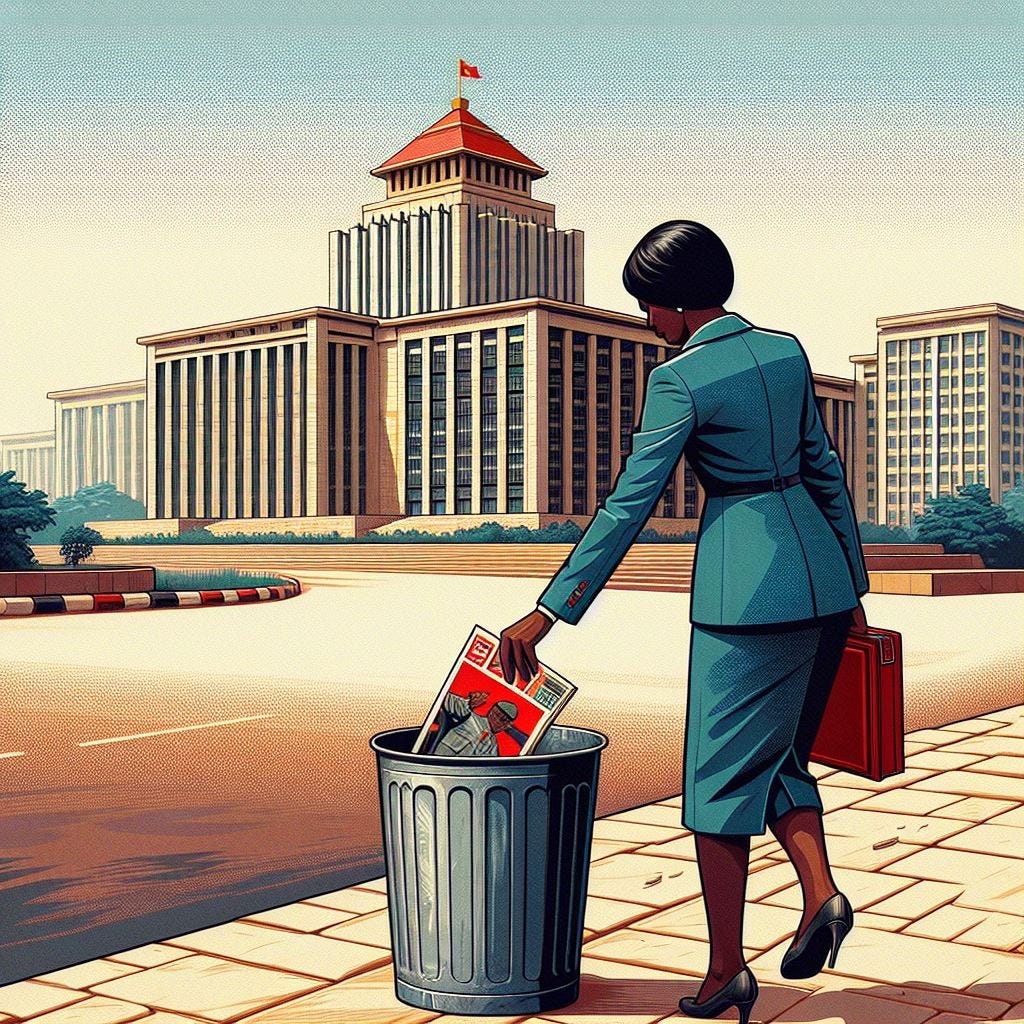The Economist’s Industrial Policy Split Personality
The newspaper is tying itself in knots on industrial policy, maligning the means but embracing the ends.
The Economist wants you to know that it thinks industrial policy is a bad idea. It wants you to know that it thinks industrial policy is a bad idea so much that it wrote a seven article long special report back in October, explaining all the ways in which industrial policy is a bad idea.
Overall, it is “a big mistake”. It won’t make supply chains resilient. It will make the world poorer. It will make the world more unequal. Using it for environmental protection is too risky. It will not achieve economic stability.
We get the picture. The Economist is anti-industrial policy. Case closed. Or is it? Not two months after it committed its cold-blooded assassination of industrial policy, the newspaper published an article celebrating France’s success in revitalising its lagging industrial sector by using er… industrial policy. The article informs readers that “France got serious about a new industrial policy after being spooked by Germany’s decision in 2022 to splurge on its own industrial transition.” And it is full of references to exactly what industrial policy looks like when it is done well.
There is this section, for example: “The French public investment bank, Bpifrance, has also turned out to be a linchpin for France’s entrepreneurs. When it was set up in 2013, sceptics feared it would grow into an unwieldy bureaucracy, under political orders to prop up ailing firms. Today it manages assets worth €50bn, and in 2022 made net profits of €1.5bn.”
France has certainly proven those sceptics wrong, whoever they were. So, why the cognitive dissonance? It may simply be a matter of definitions. The Economist’s idea of industrial policy is stuck in the 1970s. They are quick to contrast France’s success today with the failures of centralised control structures of dirigisme. They even quote the Industry Minister, Roland Lescure as insisting that this is in “no way a return to the dirigisme of the past. It’s not about doing it all ourselves in the ministry.” In their eyes, this can’t be industrial policy because it isn’t dirigisme.
We’re singling out the Economist here, but they are by no means the only culprits. The Times’ view on the Labour Party’s new economic plans for the UK, for example, is that it “recall[s] the errors of industrial strategy in the 1970s… assuming, without evidence, that governments know better than the market”. Industrial policy is reduced to government sitting in its ivory tower picking winners and failing miserably. It’s a tired trope that is easily dismantled in 2023.
As the Economist’s France article so helpfully shows, modern industrial policy is a huge departure from that 1970s stereotype. It can be the chic “La France Tech” marketing platform. Or the new France 2030 plan investing €54bn in future and green technologies. It can also be sitting a German vacuum pump maker next to Elon Musk at a dinner at the Château de Versailles. Even old-fashioned subsidies and cheap capital can be effective too, according to the Economist’s telling of how China became a world leader in electric vehicle manufacturing.
Dani Rodrik sums up the new industrial policy here, explaining his work with Réka Juhász and Nathan Lane applying natural language processing to generate classifications of industrial policies. It’s past time that influential organisations like the Economist and the Times stopped the industrial policy bashing and updated their definitions, and their priors. As the Brookings Institute notes, “effective industrial policy has been at the core of virtually every economic transformation success story around the world”. Even the IMF now thinks that industrial policy can sometimes maybe not be completely terrible.
Industrial policy is not a blank cheque, of course. Blank cheques in policymaking don’t exist. And the key word in the Brookings quote above is “effective”. Industrial policy doesn’t work everywhere all the time and there is certainly a long list of examples of where it has been ineffective, even damaging.
Ricardo Hausmann’s new article for Project Syndicate likens industrial policy to our immune system, “which protects against various invaders by using a highly decentralized detection network to identify threats and determine when it needs to act.” Sometimes our immune systems get it wrong. But it gets stronger as it is exposed to new challenges.
Our immune system learns, adapts and strengthens itself. Industrial policy is the same. In the half century since the 1970s we have learned from our mistakes, adapted our views and strengthened our policies. It’s about time the Economist caught up.

